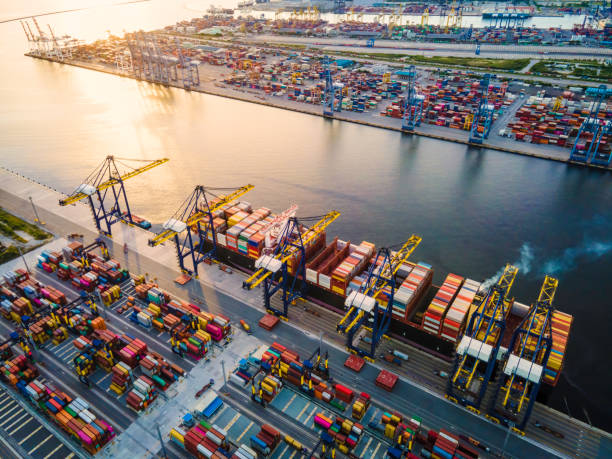In today’s interconnected world, the movement of goods across borders is more essential than ever. Global freight forwarding plays a crucial role in facilitating this movement, ensuring that products reach their destinations efficiently and cost-effectively. In this article, we’ll delve into the intricacies of global freight forwarding, exploring what it entails, how it works, and why it’s indispensable in today’s global economy.
What is Global Freight Forwarding?
Global freight forwarding is a complex process that involves the coordination and management of the transportation of goods from one location to another across international borders. Freight forwarders act as intermediaries between shippers and carriers, organizing the logistics of transporting goods via various modes of transportation, such as ships, airplanes, trucks, and trains.
The Role of Freight Forwarders
Freight forwarders play a multifaceted role in the global supply chain. Their responsibilities include:
- Documentation:
- Managing the paperwork involved in international shipping, including customs documentation, import/export permits, and bills of lading.
- Transportation:
- Arranging the transportation of goods from the point of origin to the final destination, utilizing the most efficient and cost-effective routes and modes of transportation.
- Customs Clearance:
- Facilitating customs clearance procedures, ensuring compliance with customs regulations and minimizing delays at border crossings.
- Warehousing:
- Providing warehousing and storage solutions as needed, including inventory management and distribution services.
- Risk Management:
- Mitigating risks associated with international shipping, such as cargo damage, theft, and regulatory compliance issues.
- Tracking and Monitoring:
- Monitoring the movement of goods in real-time and providing updates to shippers regarding the status of their shipments.
How Global Freight Forwarding Works
The process of global freight forwarding typically begins when a shipper (the party sending the goods) engages the services of a freight forwarder to handle the logistics of their shipment. The freight forwarder then works closely with the shipper to determine the most suitable transportation options based on factors such as the type of goods, destination, budget, and time constraints.
Once the transportation arrangements are made, the freight forwarder coordinates the movement of the goods from the point of origin to the final destination. This may involve a combination of transportation modes, such as sea freight, air freight, road transport, and rail transport, depending on the specific requirements of the shipment.
Throughout the shipping process, the freight forwarder takes care of all the necessary documentation, including customs declarations, export/import licenses, and shipping manifests. They also liaise with customs authorities and other regulatory bodies to ensure smooth clearance of the goods through customs checkpoints.
Why Global Freight Forwarding is Essential
Global freight forwarding plays a vital role in facilitating international trade and commerce. Here are some reasons why it’s essential:
- Efficiency:
- Freight forwarders leverage their expertise and networks to streamline the shipping process, minimizing delays and ensuring timely delivery of goods.
- Cost-Effectiveness:
- By optimizing transportation routes and modes, freight forwarders help shippers reduce shipping costs and maximize their profitability.
- Risk Management:
- Freight forwarders are well-versed in international trade regulations and can help shippers navigate complex customs procedures and regulatory requirements, reducing the risk of compliance-related issues.
- Global Reach:
- With a global network of partners and agents, freight forwarders have the resources to facilitate shipments to virtually any destination worldwide, providing shippers with access to new markets and opportunities.
- Customer Service:
- Freight forwarders provide personalized service and support to shippers throughout the shipping process, offering peace of mind and ensuring a positive customer experience.
Trends in Global Freight Forwarding
The global freight forwarding industry is constantly evolving, driven by technological advancements, shifting trade dynamics, and changing customer expectations. Some key trends shaping the future of freight forwarding include:
- Digitization:
- The adoption of digital technologies, such as cloud-based platforms, IoT devices, and blockchain, is revolutionizing the way freight forwarding operations are conducted, leading to greater efficiency, transparency, and collaboration across the supply chain.
- Sustainability:
- There is a growing emphasis on sustainability and environmental responsibility within the freight forwarding industry, with companies investing in eco-friendly practices and alternative fuels to reduce their carbon footprint.
- E-commerce Boom:
- The rise of e-commerce has led to increased demand for fast, reliable shipping solutions, driving innovation in last-mile delivery and fulfillment services.
- Trade Policy Changes:
- Shifts in trade policies and geopolitical tensions can have a significant impact on global freight flows, necessitating agility and adaptability on the part of freight forwarders to navigate changing trade landscapes.
Conclusion
In conclusion, global freight forwarding plays a pivotal role in facilitating the movement of goods across international borders, enabling businesses to access new markets and customers worldwide. By leveraging their expertise, networks, and technology, freight forwarders help shippers navigate the complexities of international trade, ensuring the seamless flow of goods from origin to destination. As the global economy continues to evolve, the importance of global freight forwarding in driving economic growth and prosperity cannot be overstated.


